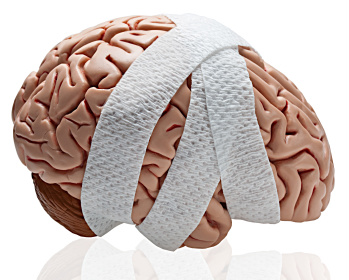References: Williams, C., & Wood, R. L. (2010). Impairment in the recognition of emotion across different media following traumatic brain injury. Journal of clinical and experimental neuropsychology, 32(2), 113-122.
Do you know that someone who has experienced a head trauma resulting in a traumatic brain injury (that is, TBI) might be impaired in relating to others? Neuropsychologists Claire Williams and Rodger Wood assessed the TBI person’s ability to recognize emotions. They evaluated 64 adults with a TBI and compared their performance with adults who had NOT even experienced a head trauma. Measures assessed participants’ accuracy in recognizing basic emotions, such as happiness, anger, and sadness, during 28 videoed scenes of actors engaged in conversation. Participants were also shown faces presented for 5 seconds on a computer screen and asked which emotion best described the facial expression. Results showed that the participants with a TBI were less accurate in identifying emotions compared to those individuals without TBI. Both groups were equal in speed. Additionally, both were less accurate in identifying negative vs. positive emotions, with the TBI group being the least accurate. Most importantly, the TBI group was more accurate recognizing emotions displayed through video compared to still photographs. Detecting emotions is important in facilitating happy relationships. Don’t assume a person with TBI can read your emotions. Verbally share how you are feeling, so they can more accurately understand you.
Written by Mara Rowcliffe, BS.

